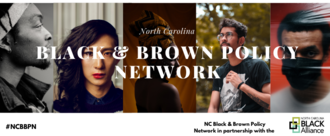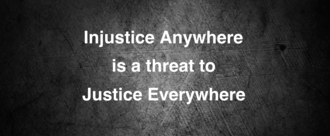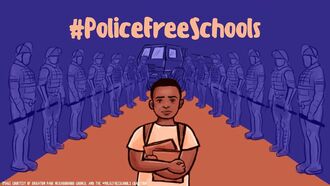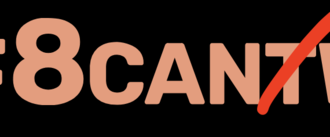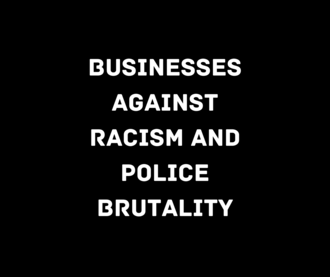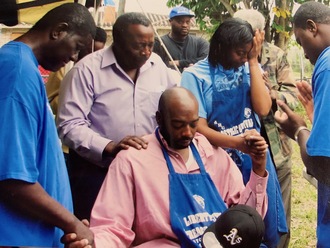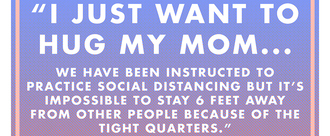- Featured
- Afropunk Army
- Community Control
- Confederate Symbols
- Cop Watch
- Corporate Accountability
- Criminal Justice Policy
- Drop/Bring Charges
- Economic Justice
- Education
- Employment Discrimination
- End The War on Black People
- Environmental Justice
- For-Profit Colleges/Universities
- Gulf Coast
- Housing Rights
- Immigration
- Invest-Divest
- Media Accountability
- Music Industry
- No Guns in Schools
- Open Internet
- Police Accountability
- Political Power
- Pop Culture
- Private Prisons
- Reparations
- Reproductive Justice
- Right Wing Racism
- School-to-Prison Pipeline
- Sports
- Voting Rights
- Wrongful Imprisonment
- More
-
Safe Elections Not Voter Suppression: Stop Photo Voter IDOver the last decade, the North Carolina General Assembly leadership has consistently and brazenly manipulated election and redistricting laws to silence Black voters and reduce Black political power, all in the name, they have proudly said, of expanding and entrenching their partisan control. Courageous legislators have stood up, session after session, and spoken truth to power about the racist and cynical intent behind these actions. H1169, the Bipartisan Elections Act of 2020, could have represented a break from the relentless partisanship and attacks on Black voters that have become the norm in North Carolina’s elections and redistricting bills. But rather than come together to advance necessary policy changes responding to the current COVID crisis, House and Senate leadership opted to first insert the lightning rod issue of photo voter ID and then other non-COVID-19 related provisions into the bill. These actions taken together are a clear attempt to impact their litigation position regarding the 2019 law (SB824) currently enjoined by two courts and to continue partisan efforts to give their party the upper hand in the 2020 election. We must ensure that H1169, the Bipartisan Elections Act of 2020, serves only to improve access to voting for all constituents. Unrelated provisions that seek to sneakily reactivate photo voter ID are a deceitful attempt to undermine the courts who have blocked this law time and again. It is imperative that you stand up for racial justice in this moment by speaking truth to legislative leadership -- Photo Voter ID has no place in a COVID-19 elections bill. H1169 is supposed to make voting easier for North Carolina voters during this pandemic, NOT to confuse voters and seek to reactivate shameful, racist barriers designed to undermine a free and fair democracy. Call to Action: HB1169 Please visit the "My Campaign" link below to access the full H1169 Bill. To read: "PHOTO VOTER ID SECTION 10. G.S. 163-166.16(a) reads as rewritten: 45 "(a) Photo Identification Required to Vote." Please visit the "My Campaign" link below to access the full H1169 Bill.535 of 600 SignaturesCreated by NC Black and Brown Policy Network
-
Justice for Javier Ambler IIOn March 28, 2019, Javier Ambler - a resident of Austin, Texas was driving home early in the morning with his brights on and passed by a Williamson County Deputy J.J. Johnson. This resulted in a police chase where he crashed his car five times and was continually and tased by the officers that apprehended him. He got out of his car with his HANDS RAISED but could not physically put his hands behind his back due to obesity. He was outnumbered, tased and forcibly restrained. Ambler's pleas for mercy and warning of his severe heart condition were ignored and he soon passed away on a neighborhood street. Over a year has passed- footage of his untimely death (that the Williamson County Sheriff's Office withheld) has been released granting his family closure but not justice. The Williamson Country Sheriff's Office has not held Deputy J.J. Johnson and Deputy Zachary Camden accountable for their actions. By signing this petition you are urging that the deputies who wrongfully abused and murdered Javier Ambler are suspended from their positions and charged. Please sign and share. Black lives matter!!!!!!!We demand JUSTICE for Javier Ambler!!!!!!!19 of 100 SignaturesCreated by Alessandra Reed
-
Removing Discriminatory Hair Policies from Henrico County SchoolsStudents of all colors and with all hair textures should be able to do the following at school: protect their hair and proudly wear cultural hairstyles. These policies were put in place with the ignorance of African American hair care and their enforcement criminalizes Black children and interferes with their learning.670 of 800 SignaturesCreated by Naomi Davis
-
Diverse Appointments to the NJ Police Training CommissionThe violence black people experience at the hands of police, and the racial disparity in incarceration rates in NJ is cruel, intolerably high, and must end. Inclusion of African Americans on the PTC allows representation for the most adversely affected community to help shape Police training and policy statewide. It provides African Americans with influence over creating and implementing changes to end systemic racism in policing, which leads to violence, including death, and over representation in prison and jail populations.480 of 500 SignaturesCreated by Rev. H William Rutherford
-
Tell D.C Leaders: We Demand Police-Free Schools!The same police that are killing Black people in the streets and that continue to harass Black youth in the community, are the same police that are in our schools. We cannot continue to put our youth in harms way! We demand POLICE FREE SCHOOLS! We demand an end to the school-to-prison pipeline. It is simple: Black youth in D.C have been screaming "Love Us. Don't Harm Us"- divest from police in our schools and invest in the social-emotional health and well-being of youth! D.C is the MOST POLICED jurisdiction in America and Metropolitan Police Department's largest contract is with D.C. Public Schools. MPD currently receives $25 million to police and criminalize our youth! This increases the likelihood that adolescent behavior or responses to trauma will not be met with support but further harm. 74% of Black youth will not get the support they need. Instead: - Nearly 100% of all school expulsions are of Black youth, nearly 100% of school based arrest are of youth of color - D.C. police are also responsible for harassing and handcuffing Black youth as young as 9 years old. - 60% of girls arrested in D.C are under the age of 15. - Black girls in D.C are 30 times more likely to be arrested than white youth of any gender identity. - Often girls are disciplined and referred to police for their responses to sexual violence. This creates an unsafe and unwelcoming environment for girls, and compounds the trauma that survivors of gender base violence experience. Always, but especially now, our Black youth need love, not harm! We need to ensure that our young people have what they need to learn, that our young people have increased access to mental health professionals to address the heightened trauma caused by COVID -19 and, rampant police violence and racism. We need your support to protect Black and Brown youth from further harm and to preserve their right to live and thrive!3,643 of 4,000 SignaturesCreated by Samantha Davis

-
Recall #8CantWaitThe eight demands from Campaign Zero cannot reduce police violence by 72%. It is a faulty claim and they do not have the research to support it. The campaign does not account for all kinds of police violence in the first place, yet they are using faulty data to spread that 8 reforms can reduce police violence. Even if they use police killings instead of violence, the data simply does not support. Almost every demand is purely subjective. What does it mean to "require a warning before shooting?" Two seconds? Five seconds? Ten seconds? Why would the same police officers who are escalating in the streets decide to follow "de-escalation" when they are off camera and in our communities? What about the police officers who want to escalate? For example, Chicago Police Department, according to Mayor Lori Lightfoot, already has all 8 policies, yet remains one of the most brutal departments in the country. They require deescalation, and alternative use of force, and intervention, but several officers still surrounded Officer Jason Van Dyke as he shot LaQuan McDonald 16 times. Many departments have already implemented these policies and it has not reduced the likelihood of police violence. The department level. The Minneapolis Police Department implemented at least half of these reforms, and George Floyd was still murdered. San Francisco adopted every single one of the policies put forth by the #8cantwait, but received an F in their related Police Scorecard. Herein lies the issue: police violence does not match neatly to statistics in the ways that campaign zero puts forth in these 8 demands. Mayors and even police departments are eager to adopt the #8CantWait demands, demonstrating that they would much rather continue to implement reforms that don't require any significant change to policing. Organizations like the Movement 4 Black Lives, Dignity & Power Now, Black Youth Project 100, and Black Lives Matter network are echoing the demand to ‘defund the police’- even climate organizations like 350.org have joined in the chorus pushing towards more transformative demands. Black people - all people - deserve more.1,250 of 2,000 SignaturesCreated by Derecka Purnell
-
Defund the PoliceWe have all seen at one time or another just how incredibly powerful voting with our dollars really can be, and right this very moment, there are thousands of businesses which have significant dollar-voting power and a unique ability to stop police brutality and demand sweeping reform of the criminal justice system. In the wake of both endless and recent blatant abuse of power & criminal violence and terror put upon innocent civilians and peaceful protestors, our country and the values we believe in are in a dire state of emergency. It is up to us, as the people of the United States to hold our elected officials accountable. The quickest way to earn their attention to the point they are willing to make REAL reformative and sweeping changes to the criminal justice system is if we the people use our power to restrict their access to funds. How can we do that? Simple. We demand the public condemning and severing of ties from businesses, executives, sporting teams, schools, universities, little leagues, concerts, events and more to cancel their contracts with the criminal police forces immediately until reform happens. Other businesses which provide services to corrupt police forces will also be called on to publicly distance themselves in a peaceful act of protest by canceling their service contracts as well until real reform conditions are met. We can do this!!!!561 of 600 SignaturesCreated by Kaitie Zhee
-
After the smoke clears... Arrest Juan DelaCruz for the senseless murder of Pamela TurnerBecause I too suffer with mental health issues and have been beaten by the police and plenty of counterparts on many horrific occasions, because of me failing to take my medication and becoming manic; so this could have been me, but only for the Grace of God. Her story resonates with me through and through, and come to find out, there's many others who've met a terrible demise like Pamela, due to police officers not being properly trained to deal with the mentally ill.994 of 1,000 SignaturesCreated by Paulette Williams

-
Tell Atlanta to Move $18 Million from Cuffs to Care!In a time of public health crisis and a $40 million budget deficit, it is unconscionable for the City of Atlanta to spend $18 million to lock people in cages for jaywalking and disorderly conduct. We can, in no way, allow for this jail - and potential hotspot - to exist any longer in our community, wasting desperately needed resources, criminalizing people for being poor, and making us all less safe.3,210 of 4,000 Signatures
-
Let Anthony Go HomeA judge determined that Anthony Swain was eligible for release, but set his bond at $650,000, an amount that no one but the very wealthiest would be able to afford. As a result, Anthony has suffered in jail for four years, waiting for a trial that never comes. He is a paraplegic man with a rare degenerative disease that affects his respiratory and immune system. Without proper medical treatment, the disease can be deadly. On top of that, Anthony was recently diagnosed with COVID19 and is now in isolation, dealing with incredible cruelty. The jail cannot care for him. Let Anthony Swain go home. Anthony is a 43-year-old Black man who is wheelchair-bound and has been paralyzed from the waist down for most of his life. In February of 2016, Anthony was arrested on drug charges. Before he was locked up, Anthony was a staple in his community. On any given weekend, he could be found at his church with his tight-knit family or doing fish fries to feed people in his neighborhood. Since he has been incarcerated, Anthony's condition has deteriorated. He was diagnosed with cystic myelomalacia in 2019, which causes respiratory problems and a weakened immune system. So when coronavirus hit Florida, Anthony knew he was especially at risk. He contacted Dream Defenders to file a lawsuit to secure the immediate release of medically vulnerable people like himself and wrote an op-ed to bring attention to the despicable conditions he has been forced to endure. Anthony believed that if he wasn't released immediately, he would catch the virus at the jail. He was correct. On Mother's Day, he could not breathe. He was taken to the hospital, where he tested positive for coronavirus. He was taken from the hospital back to the jail, where he is now in isolation in a tiny cell that can't accommodate his disability. Since he’s been in isolation, he’s been eaten by ants that have infested his cell, has open wounds all over his body from bedsores, and been unable to even clean himself. This is no way for a person to recover. In addition to immediate concerns about his health and well-being, Anthony is also at risk for long-term repercussions including blood clots, stroke, heart disease, neurocognitive disorders, and so much more. Anthony has been forced to endure utter cruelty for too long. An unaffordable bond shouldn't strip someone of their right to live a safe, healthy life.54,973 of 75,000 Signatures
-
#FreeOurYouth in Philly now!As states across the country take steps to stop the spread of COVID-19--closing schools, canceling events, and shifting to supporting children in their homes and communities--one group of young people is being left behind: the nearly 50,000 youth in custody in the United States. It took staff killing a youth to close down Wordsworth Academy, and decades of child abuse to lead to an investigative news piece that would close down Glen Mills. Institutional violence persists toward Philadelphia children in detention across the state, and a growing consensus prevails, including in Philadelphia, that we do not want any children in cages. Yet, amidst an unprecedented global pandemic, minimal numbers of youth have been released from the Philadelphia Juvenile Justice Services Center. Over 100 youth still sit in this building, many pre-trial or on technical probation violations. Many more Philly youth are stuck in placement facilities across the state, many of them beyond discharge dates that have come and gone. And 19 children are locked in the city’s adult jails on State Road, all detained pretrial with no court date in sight. Mass release has been done in less urgent times. As YASP organizer Will Bentley reminds us, we send children to adult jail before we allow them to vote. We call on First Judicial District and Family Court leadership - Judges Fox, Tucker, Dugan, Murphy, Gordon, Cooperman, Rebstock, Irvine, and Hearing Officer Wahl - District Attorney Krasner; and Mayor Kenney - to act now to save the lives of the most vulnerable children of this city and allow them to come home to their families, which is smart on public safety and public health. We also demand that the upwards of $400/day that is spent to house youth in JJSC - which opened the same year that dozens of Philadelphia Public Schools closed - as well as funds used to hold young people in adult jails and juvenile placements, be redirected to public schools, community organizations, and job programs that serve our youth.1,096 of 2,000 SignaturesCreated by Youth Art & Self-empowerment Project
-
Approve S.O.S. Stimulus Grants for Micro BusinessesOur tax dollars should be used to support churches, local restaurants, bodegas, barbershops, hair salons, dine-in restaurants, retail stores, Uber Drivers, and independent contractors who struggle....not "small businesses" that are publicly traded and have access to investors and big bank loans. This bill is for the business that watched as Shake Shack received millions, and felt defeated. Seventy-five percent (75%) of the Saving Our Streets (S.O.S.) Act would be used to provide grants worth up to $250,000 dollars to historically under-represented who are socially and economically left out - businesses owned by people of color, the formerly incarcerated, low-income, women. These are the business owners that banks denied, the business owners who can't call up the Senior Vice President of a major financial institution and ask for a "favor." Additionally, tiny businesses that have fewer than 10 employees (less than 20 employees if you're in an underserved community) AND have less $1 million in business revenue. This is NOT for publicly traded companies or hedge funds. They got access to their share. The SOS bill was set up for businesses that cannot compete with Ruth Chris, Potbelly, the Lakers - who benefited from programs like the Payment Protection Program. When you sign this petition, you are fighting for the self-employed, the Uber Drive, the FIverr contractor, the hair salon, the barber shop, the soul food spot....you are fighting for the side hustler who has to fight with their employer just to get fair pay. You are fighting for the businesses who fight to SERVE YOU every day. Press: "Sen. Kamala Harris and Rep. Ayanna Pressley have a $125 billion plan to help the smallest businesses" https://www.vox.com/2020/5/6/21249161/kamala-harris-ayanna-pressley-small-businesses-plan Kezia M. Williams CEO, The Black upStart www.instagram.com/theblackupstart www.theblackupstart.com Partners Supporing the S.O.S. Act NAACP National Urban League Black Economic Forum Main Street Alliance883 of 1,000 SignaturesCreated by Kezia Williams

